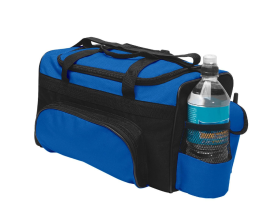Substance abuse is an pervasive issue that influences people and families across varying backgrounds. One pivotal step towards tending to this challenge is early substance abuse evaluation. This guide aims to shed insight into why early evaluation is vital, not just for the people battling with substance abuse but also for their families and communities.
Understanding Early Substance Abuse Evaluation
Early substance abuse evaluation includes the timely evaluation of an individual’s patterns of substance use, ways of behaving, and generally speaking, emotional well-being. The objective is to distinguish signs of substance abuse disorders and co-occurring mental health conditions at an early phase. This proactive methodology is instrumental in forestalling the escalation of the issue and facilitating timely mediation.
Notable Benefits of Early Substance Abuse Evaluation
Timely Identification of Issues
One of the primary advantages of early substance abuse evaluation is the capacity to recognize possible issues before they twist crazy. Substance abuse issues frequently start subtly, with people taking part in occasional or recreational use. Early assessment permits experts to perceive these patterns and intervene before they develop into more extreme substance abuse disorders.
Facilitating Prompt Treatment
Early identification sets the stage for speedy and effective treatment. Substance abuse evaluation results guide medical services experts in creating customized therapy plans custom-made to the individual’s specific requirements. This designated approach improves the likelihood of fruitful recuperation by addressing the underlying drivers and factors adding to substance abuse.
Preventing Long-Term Consequences
The longer substance abuse goes ignored, the more prominent the risk of long-term outcomes. Early assessment plays a vital part in relieving these dangers. It forestalls the deterioration of physical health, mental prosperity, and relationships. By interceding early, people and their families can stay away from the possibly devastating outcomes related to delayed substance abuse.
Addressing Co-Occurring Disorders
Numerous individuals battling with substance abuse also experience co-occurring mental health issues. Early substance abuse assessment allows for the identification of these simultaneous issues, empowering a thorough and incorporated treatment approach. Tending to both substance abuse and mental health concerns at the same time improves overall results and decreases the risk of backsliding.
Reducing the Stigma Surrounding Substance Abuse
Stigma frequently acts as a barrier to looking for help for substance abuse. Early SAP evaluation destroys this shame by emphasizing the significance of proactive and preventive measures. By outlining substance abuse evaluation as a positive step towards wellness, people might be more disposed to look for help without the fear of judgment.
Involving Families in the Process
Substance abuse influences the person as well as their friends and family. Early assessment energizes family involvement in the recuperation cycle. Relatives can acquire insights into the difficulties their loved one is confronting, encouraging understanding and empathy. Additionally, early intervention can forestall the strain that substance abuse puts on family dynamics, giving a chance to recuperate and support.

Conclusion
The significance of early substance abuse evaluation can never be overstated. It fills in as a basic tool in forestalling the progression of substance abuse, facilitating timely treatment, and mitigating long-term results. By including families and tending to co-occurring problems, early evaluation supports a holistic approach to dealing with recuperation. It is a proactive measure that benefits people facing substance abuse challenges as well as adds to building better and stronger communities. As awareness grows about the significance of early assessment, we draw closer to creating a society where convenient intervention turns into the standard, encouraging a culture of understanding, support, and recuperation.







